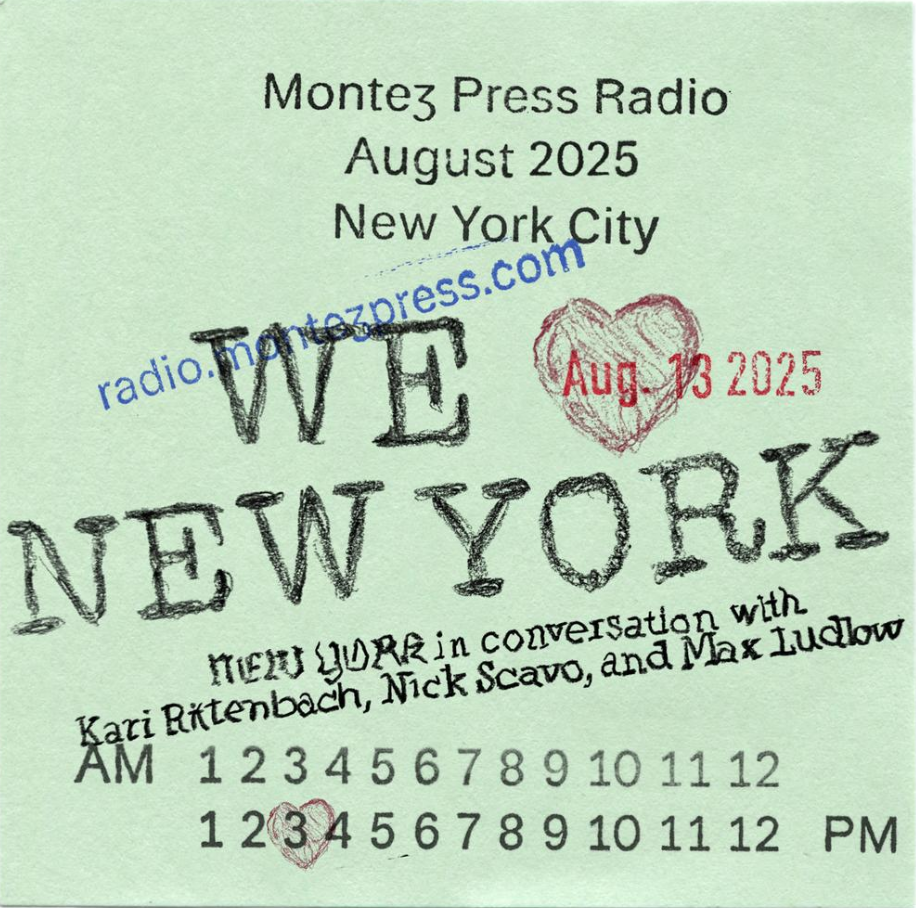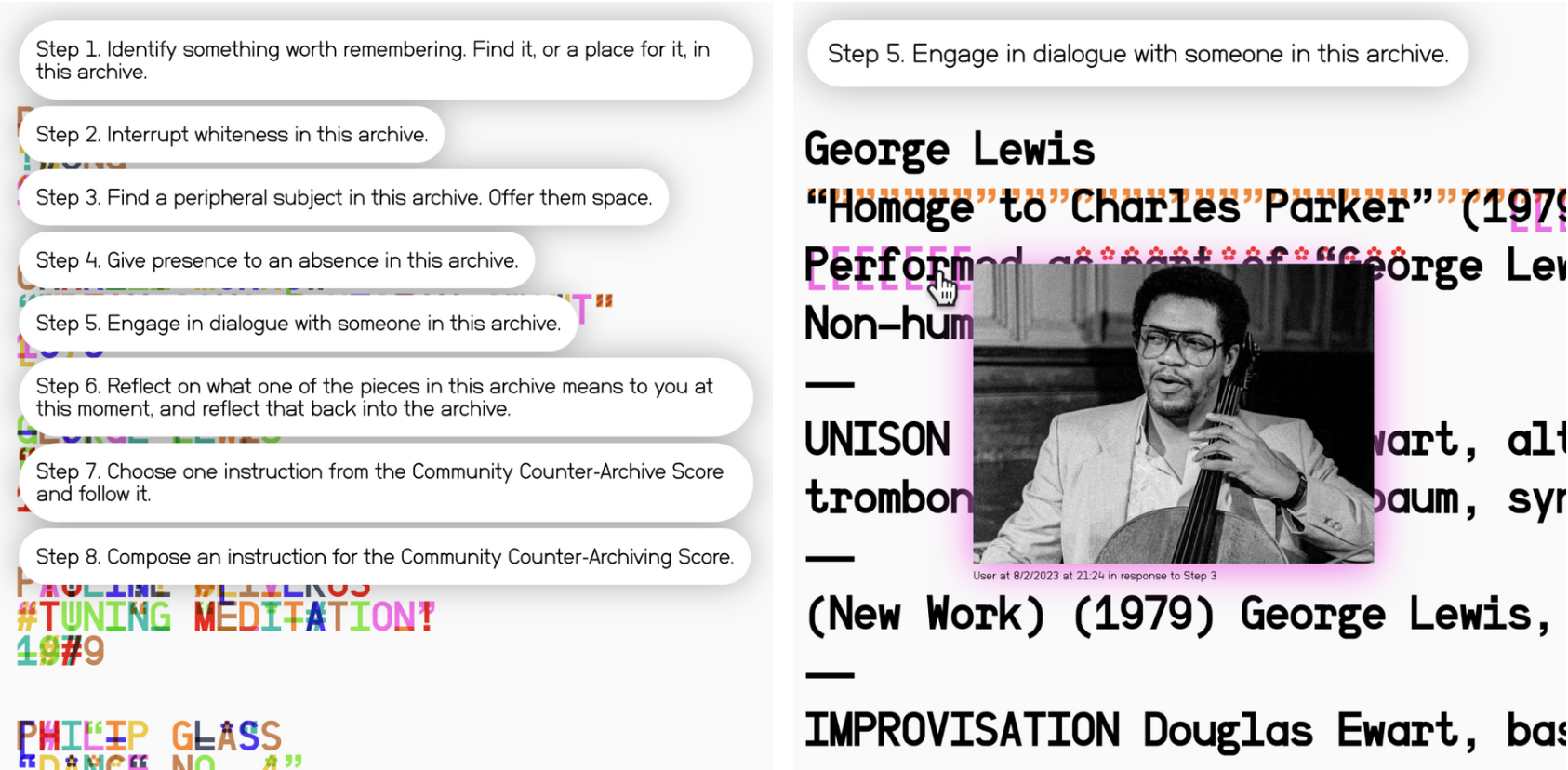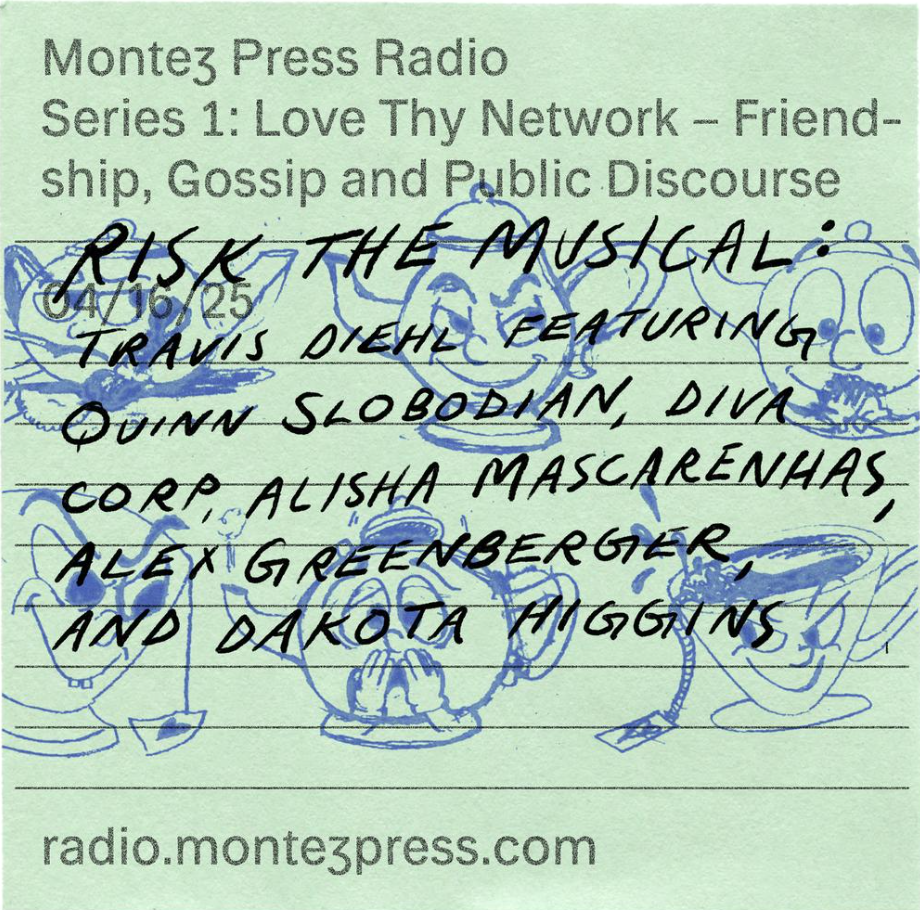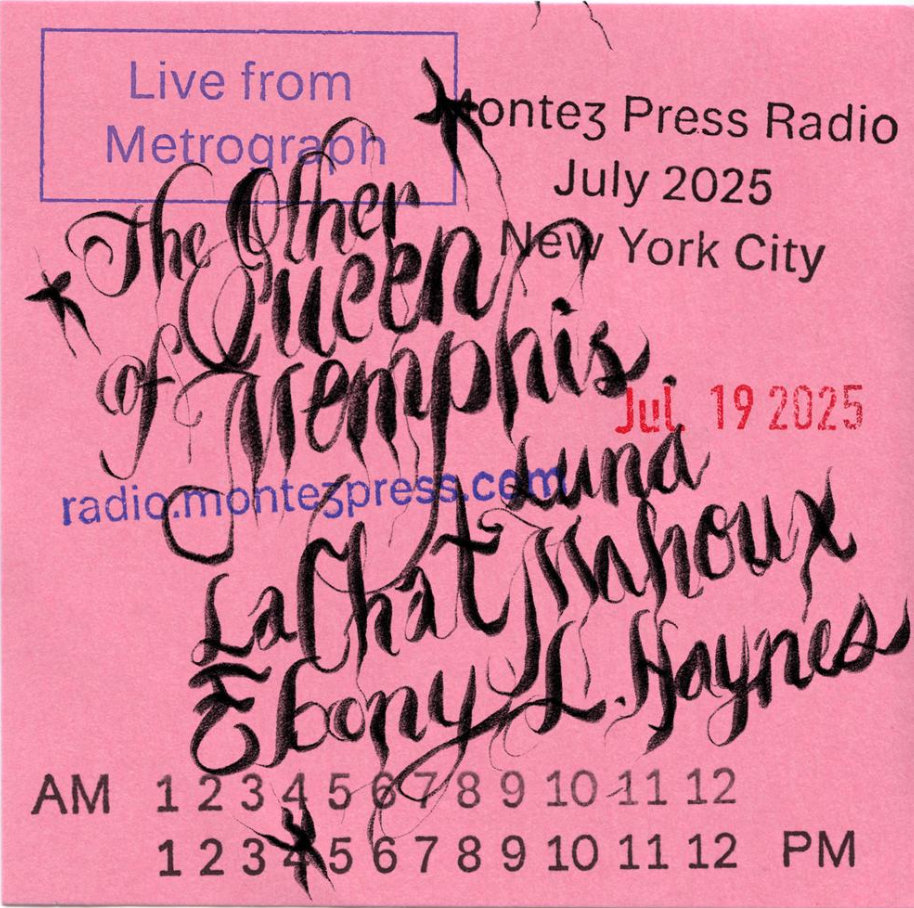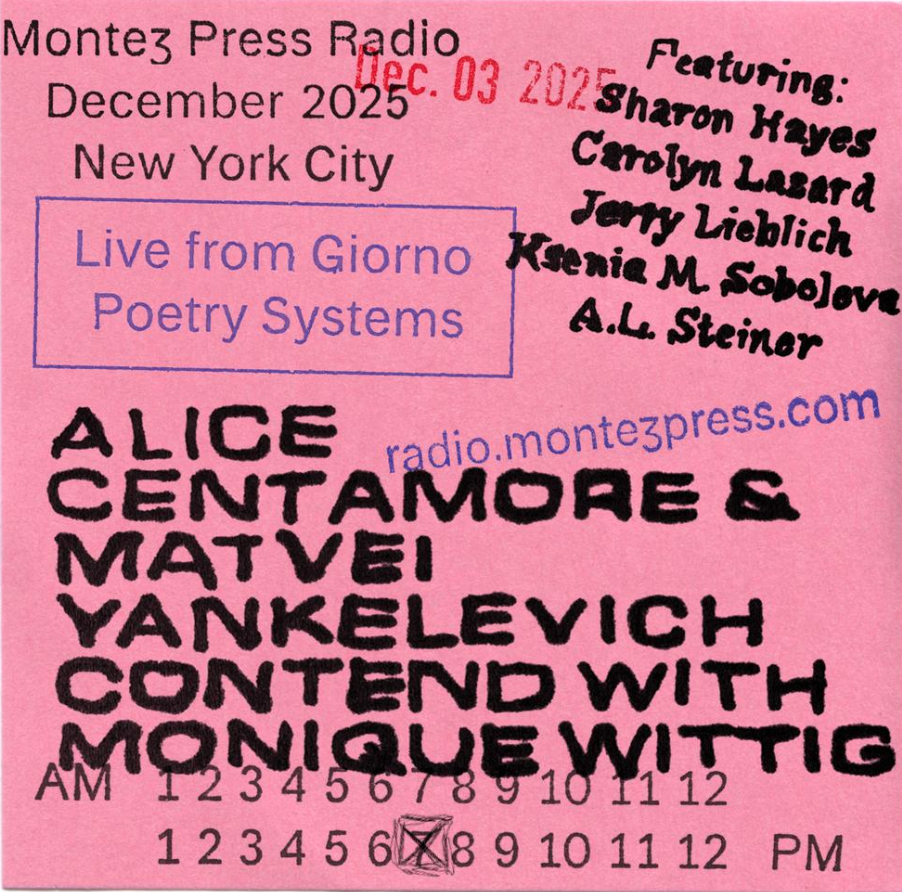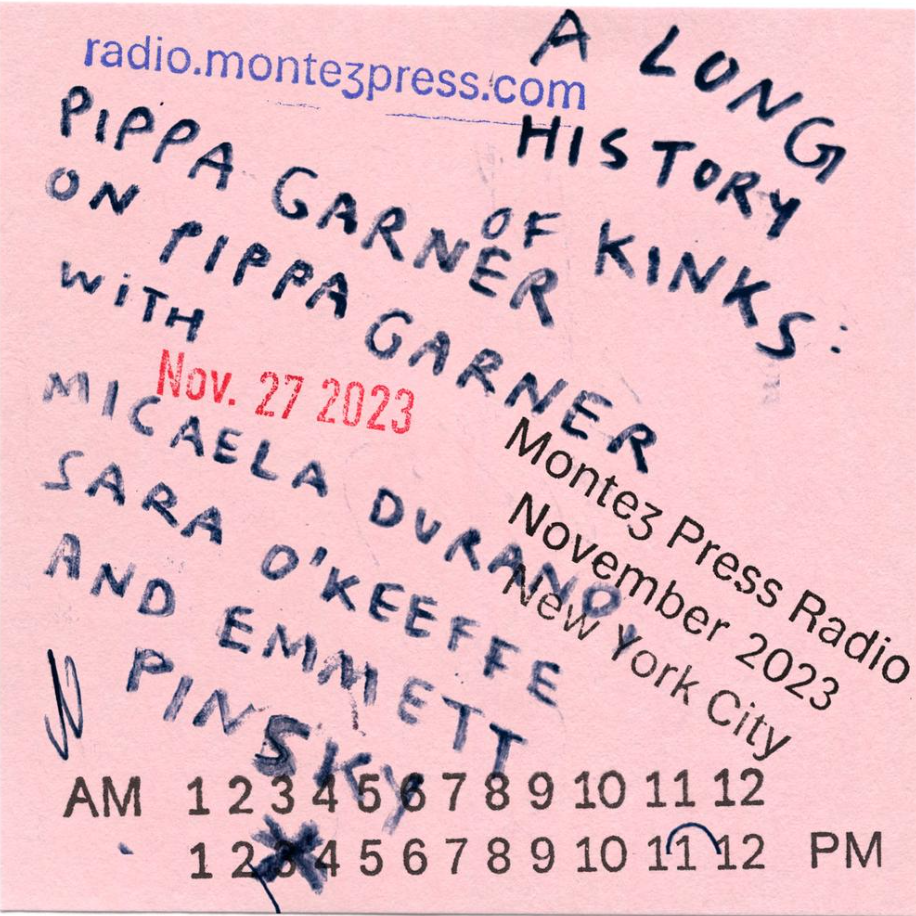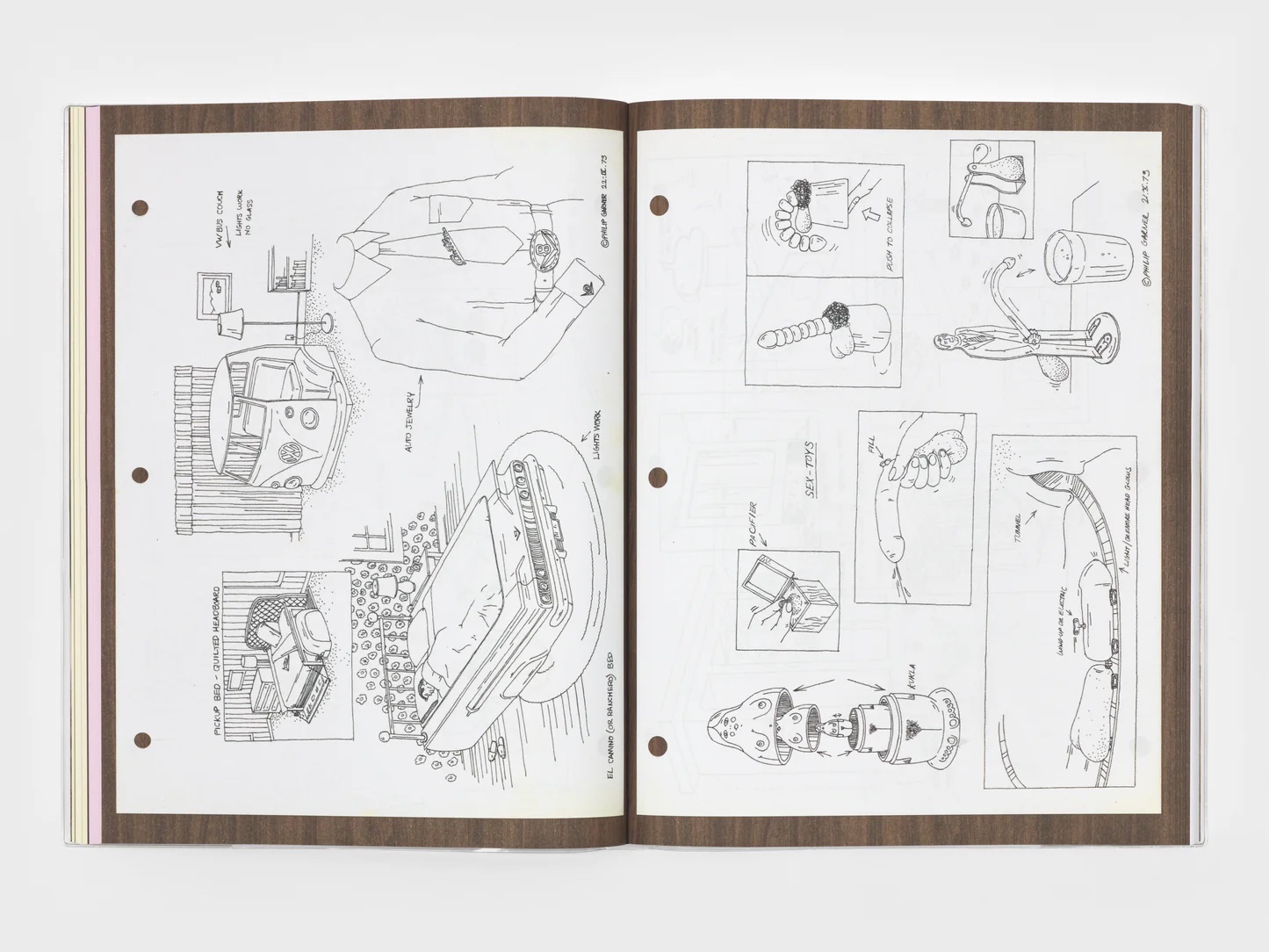Monday, March 2, 2026 by Montez Press Radio #art
Outsider Translations
ART follows musician Dorian Electra’s encounters with their favorite works from Antiquity. Part tribute and part experiment, ART is a self-aware outsider’s attempt at translation.
This book-launching segment features readings and performances by Dorian Electra, Jane Balfus, Sam Rolfes, Corrine Ciani, Julian Ribeiro, Babedrea33, Izzy Casey, Christian Prince, Ruby Justice, Lewis Grant, Count Baldor, DJ F*ck, Nicholas Christenson + Lulu West, and more.
Listen to the full segment ➚here
Bonus Links:
>>> Buy a copy of ART ➚here.
>>> Listen to Dorian talk alt-media conspiracies & ideological mixology ➚here.
Friday, February 27, 2026 by Montez Press Radio #interviews #music
We <3 NY
International girl-pop luminaries NEW YORK join MoMA PS1 Warm Up co-organizers Nick Scavo and Kari Rittenbach to discuss early performances, the making of their debut album, and key musical inspirations, moderated by Montez Press Radio’s Max Ludlow.
Listen to the full segment ➚here
Bonus Links:
>>> Listen to NEW YORK's latest EP 'Push' in full ➚here
>>> Listen to their NTS show ➚here
>>> Follow NEW YORK's site ➚here
Wednesday, February 25, 2026 by Montez Press Radio #music
Rewriting History
Asha Tamarisa chairs a roundtable discussion that unsettles “official” histories and dominant archival logics while illuminating the intricate relationship between the Global South and American experimental sonic arts.
Listen ➚here
Bonus Links:
>>> Read "Cache Rules Everything Around Me" from the Counter Archive Issue of Incite! ➚here.
>>> Read more about the Counter-Archiving the Avant-Garde platform ➚here.
>>> Listen to more episodes about archives in MPR's archive under the Archive tab ➚here. Archives...archives...archives...
Sunday, February 22, 2026 by Montez Press Radio #art
Risk: The Musical
Is risk a desirable quality in contemporary art? To find out, Travis Diehl decided to ask a handful of people from varying disciplines to think along these lines in an era of doxxing and cancellation. Featuring Quinn Slobodian, Diva Corp, Alisha Mascarenhas, Alex Greenberger, and music by Dakota Higgins.
Listen to the full segment ➚here.
Bonus Links:
>>> Get Diva Corps' two cents ➚here
>>> Listen to Travis review art reviews via the MPR archive ➚here
Monday, February 16, 2026 by Montez Press Radio #interviews #music
The Other Queen of Memphis
Hear director Luna Mahoux discuss The Other Queen of Memphis, her documentary celebrating the unsung icon of Memphis rap, La Chat. Traversing resistence and rememberance as we follow La Chat through the city, the film traces a story of legacy, loss, and the tension between cultural influence and material wealth.
Listen to the full segment ➚here
Bonus Links:
>>> Listen to La Chats' legendary album Murder She Spoke ➚here.
>>> Listen to La Chats' NTS show ➚here.
>>> Listen Memphis legends tear up the club via the MPR archive ➚here.
Monday, February 16, 2026 by Montez Press Radio #readings
Never Think Straight
In response to Monique Wittig’s The Lesbian Body—the 1973 genre- and gender-breaking work of theory-fiction that challenged the heterosexual order of literature—this event gathers artists and writers to engage with its legacy fifty years after its English debut. In The Lesbian Body, Wittig celebrates sites of pleasure and lesbian eros through joy, violence, and tenderness, radically transfiguring gender by lesbianizing grammar, myth, and vocabulary.
Writers Alice Centamore and Matvei Yankelevich, responding to Wittig’s dissatisfaction with the original 1975 English translation, revised the text following her marginal notes. Their new edition, published by Winter Editions, foregrounds Wittig’s typographic innovations and renders her revisionist approach to language more fully.
For this event, Alice and Matvei invite a range of artists to perform from and respond to their favorite passages from the book. Sharon Hayes, Carolyn Lazard, and A. L. Steiner, alongside playwright Jerry Lieblich and art historian Ksenia M. Soboleva, collectively reflect on The Lesbian Body’s utopian project from today’s vantage point.
As Jack Halberstam promises, “you will never think straight again.”
Listen to the full segment ➚here
Bonus Links:
>>> Check out the new edition ➚here.
>>> Read the original 1975 translation ➚here.
Saturday, February 14, 2026 by Montez Press Radio #art #performance
Lessons of a Senior Slut
This conversation with legendary artist Pippa Garner traces her fascination with kinks and bodies across a kaleidoscopic practice—from custom cars and DIY T-shirts to hormone hacking. Happy Valentine's Day.
Listen ➚here
Bonus Links:
>>> Buy the Garner monograph $ELL YOUR $ELF ➚here.
>>> Find more body-talk under MPR's Erotica tab ➚here.



